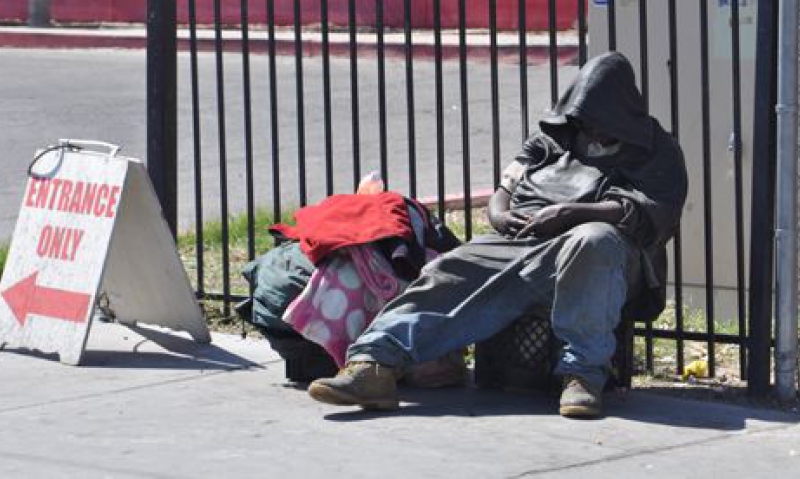
American Legion among hundreds of attendees at forum in Washington that highlights ‘best practices’ for VA’s 5-year plan to eradicate the problem.
It has been a little more than a year since Secretary of Veterans Affairs Eric Shinseki announced his department’s intention to seriously address the needs of homeless veterans. Although the VA’s Five Year Plan to End Homelessness Among Veterans was officially rolled out in November 2009, Shinseki previewed the program three months earlier when he spoke at The American Legion’s 2009 National Convention in Louisville.
“No one who has served this nation should ever find themselves living without care – and without hope,” Shinseki said. “I know that there are never any absolutes in life, but unless we set an ambitious target, we would not be giving this our very best efforts.
“To do this well, we will have to attack the entire downward spiral that ends in homelessness. We must offer education, jobs, treat depression, fight substance abuse, and offer safe housing. We have to do it all: education, jobs, mental health, substance abuse, housing."
VA’s five-year plan has now taken solid shape with the establishment this past June of the United States Interagency Council on Homelessness (USICH) that partners Shinseki’s efforts with those of fellow secretaries from the departments of HUD (Housing and Urban Development), HHS (Health and Human Services) and Labor, along with the director of the Domestic Policy Council.
On Dec. 7-8, VA and USICH hosted a National Forum on Homelessness Among Veterans in Arlington, Va. More than 400 health-care and federal service providers, outreach coordinators and other professionals networked and discussed “best practices” for ending homelessness among veterans. Among those attending were Joe Sharpe and Mark Walker, director and deputy director, respectively, of The American Legion’s Economic Division in Washington.
Sharpe said he was struck by Shinseki’s opening address, in which the VA chief noted that military veterans are much more likely than non-veterans to be unemployed or under-employed, suffer from depression, practice substance abuse or commit suicide than non-veterans.
Walker added that VA “is doing its best to cope with this distressing situation. Secretary Shinseki, with the backing of the president’s administration, is serious in his intentions.” As to the goal of ending homelessness among veterans within five years, Walker said it was achievable if – and only if – the private sector also works vigorously to help solve the problem.”
Sharpe and Walker emphasized the roles of NGOs (non-government organizations), community agencies and institutions, faith-based organizations and employers in addressing homelessness. “The ultimate solution to homelessness is prevention,” Walker said. “That’s what the Legion is focused on.”
The American Legion is assisting VA with its five-year plan in a variety of ways. The country’s largest veterans organization offers support for homeless (or potentially homeless) veterans and their families through informal advice and counseling, assistance in obtaining VA health care and benefits, temporary financial assistance, aid from its Child Welfare Foundation, and housing initiatives by local Legion posts. Sharpe said that some homeless veterans also get help with employment through the Legion’s year-round job fairs and veteran-owned small business development programs. “We must get to them before they get to the street,” Sharpe said.
Facts about homeless veterans
• On any given night, about 107,000 veterans nationwide are homeless.
• About 63,000 veterans nationwide are counted as “chronically homeless.”
• The largest number of homeless veterans are those from the Vietnam era.
• Women are the fastest-growing segment of the homeless veteran population; many have dependents.
• Common causes of homelessness among veterans are lack of employment or under-employment, inadequate family and community support, scarcity of affordable housing, and mental or physical illnesses and disabilities.
- Veterans Benefits

